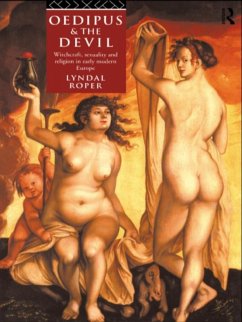
Man-Devil (eBook, PDF)
The Mind and Times of Bernard Mandeville, the Wickedest Man in Europe

PAYBACK Punkte
11 °P sammeln!
A lively and provocative account of Bernard Mandeville and the work that scandalized and appalled his contemporaries-and made him one of the most influential thinkers of the eighteenth century In 1714, doctor, philosopher and writer Bernard Mandeville published The Fable of the Bees, a humorous tale in which a prosperous hive full of greedy and licentious bees trade their vices for virtues and immediately fall into economic and societal collapse. Outrage among the reading public followed; philosophers took up their pens to refute what they saw as the fable's central assertion. How could it be ...
A lively and provocative account of Bernard Mandeville and the work that scandalized and appalled his contemporaries-and made him one of the most influential thinkers of the eighteenth century In 1714, doctor, philosopher and writer Bernard Mandeville published The Fable of the Bees, a humorous tale in which a prosperous hive full of greedy and licentious bees trade their vices for virtues and immediately fall into economic and societal collapse. Outrage among the reading public followed; philosophers took up their pens to refute what they saw as the fable's central assertion. How could it be that an immoral community thrived but the introduction of morality caused it to crash and burn? In Man-Devil, John Callanan examines Mandeville and his famous fable, showing how its contentious claim-that vice was essential to the economic flourishing of any society-formed part of Mandeville's overall theory of human nature. Mandeville, Callanan argues, was perfectly suited to analyze and satirize the emerging phenomenon of modern society-and reveal the gap between its self-image and its reality. Callanan shows that Mandeville's thinking was informed by his medical training and his innovative approach to the treatment of illness with both physiological and psychological components. Through incisive and controversial analyses of sexual mores, gender inequality, economic structures, and political ideology, Mandeville sought to provide a naturalistic account of human behavior-one that put humans in close continuity with animals. Aware that his fellow human beings might find this offensive, he cloaked his theories in fables, poems, anecdotes, and humorous stories. Mandeville mastered irony precisely for the purpose of making us aware of uncomfortable aspects of our deepest natures-aspects that we still struggle to acknowledge today.
Dieser Download kann aus rechtlichen Gründen nur mit Rechnungsadresse in A, D ausgeliefert werden.













